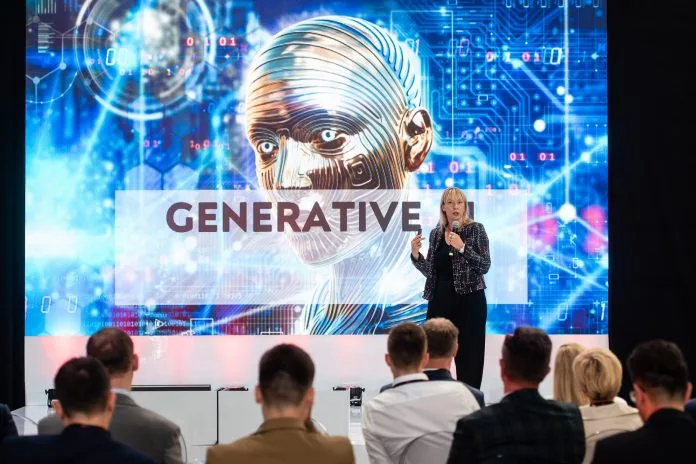An interview with Aleksandra Przegalińska, AI Expert and Futurologist, Koźmiński University

Aleksandra Przegalińska is a leading expert on AI, AIER Visiting Research Fellow and a future Harvard Senior Research Fellow (US), and the Vice-Rector responsible for International Cooperation and ESR + Associate Professor at Kozminski University (Poland).
Przegalińska has extensive experience in the field of AI, having worked as a researcher at MIT and Harvard. She is a frequent keynote speaker and has published numerous articles on the subject in leading academic journals. Przegalińska is passionate about using AI to make the world a better place. She is particularly interested in its ethical implications and how it can be used to promote social good. She is a strong advocate for responsible AI development and governance.
The future of AI: insights from AI expert
Radial asked Aleksandra Przegalińska about her perspectives on the future of artificial intelligence and its implications for business.
In summary, Aleksandra Przegalińska’s insights reveal a landscape where AI will significantly influence business operations and productivity. While there are exciting opportunities ahead, addressing the associated risks will be crucial for navigating the evolving role of AI. Radial’s discussion with Przegalińska provides valuable perspectives on how businesses can prepare for and adapt to these changes.
Aleksandra Przegalińska, AI Expert and Futurologist, Koźmiński University
What should we expect in the next 5 and 20 years regarding the evolution of artificial intelligence and its impact on business?
In the next five years, we can reasonably predict that generative AI will become more refined and prevalent. This technology is likely to dominate our interactions with AI, leading to advancements such as video generation—something we currently lack. Additionally, we can expect a significant reskilling process within companies as they adopt these technologies. Localization will become important as businesses may prefer to use local versions of tools like ChatGPT to enhance safety and address company-specific challenges. While five years is a manageable timeframe for predictions, forecasting 20 years into the future is much more uncertain.
What are the opportunities and risks?
One of the main opportunities is the potential rise in productivity. Although the concept of productivity alone doesn’t fully capture human capability, generative AI can help us work faster and, hopefully, more effectively. Research indicates that when technology supports human expertise, it enhances the quality of work. Thus, combining human skills with machine capabilities tends to be more effective than either alone.
On the downside, a major concern is the risk of misinformation. While fears about AI becoming a threatening force, like in the Terminator scenario, are less immediate, the real threat lies in the potential for misinformation and deep fakes. These issues are very real and require regulation. In the context of work, AI will transform how we work rather than eliminate jobs, presenting more of a challenge than a threat.
Revolutionizing fulfillment
Artificial Intelligence (AI) has the power to revolutionize how businesses operate, making them more efficient, accurate, sustainable, and customer-centric. It’s not merely a tool. It is a strategic asset that enables companies to meet and exceed the high expectations of today’s modern customers.
Read our blog post to discover how AI’s transformative impact is driving success across various business sectors, including fulfillment services.

Navigating the Future of Fulfilment with AI: Expert Perspective
Integration of artificial intelligence in fulfilment operations is not just a trend. It’s a necessity for businesses aiming to thrive in the digital age.
